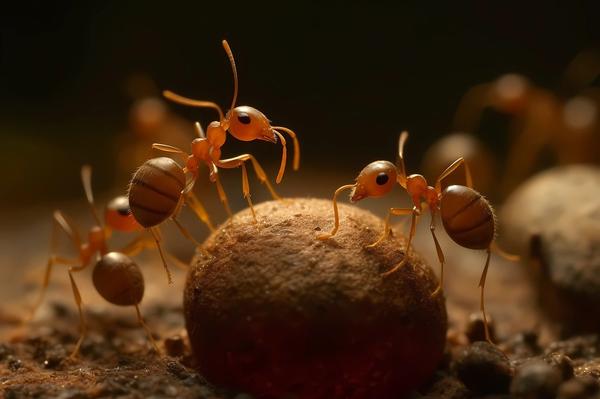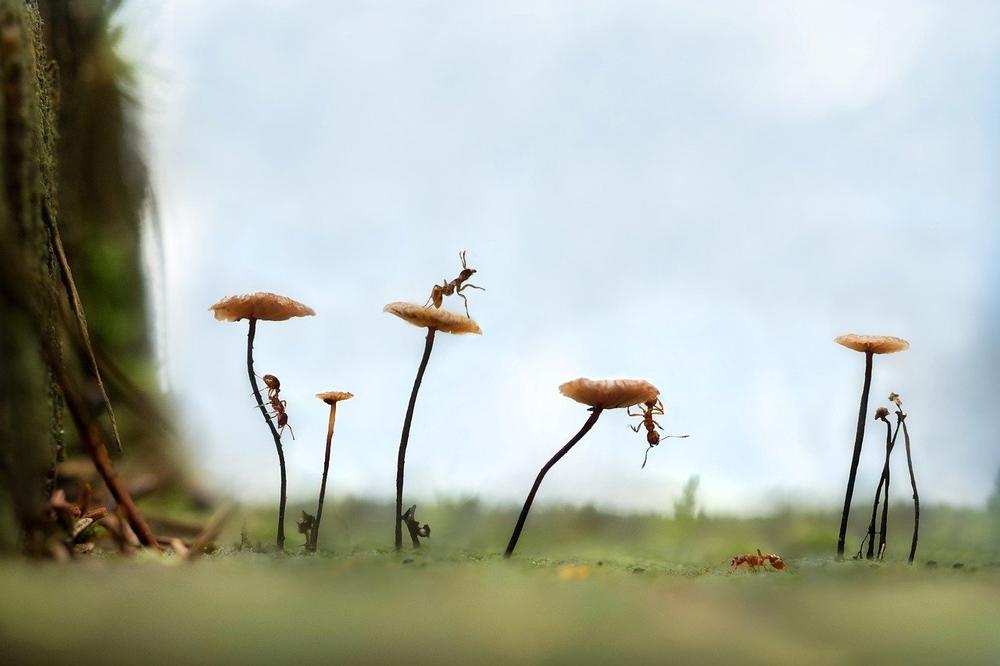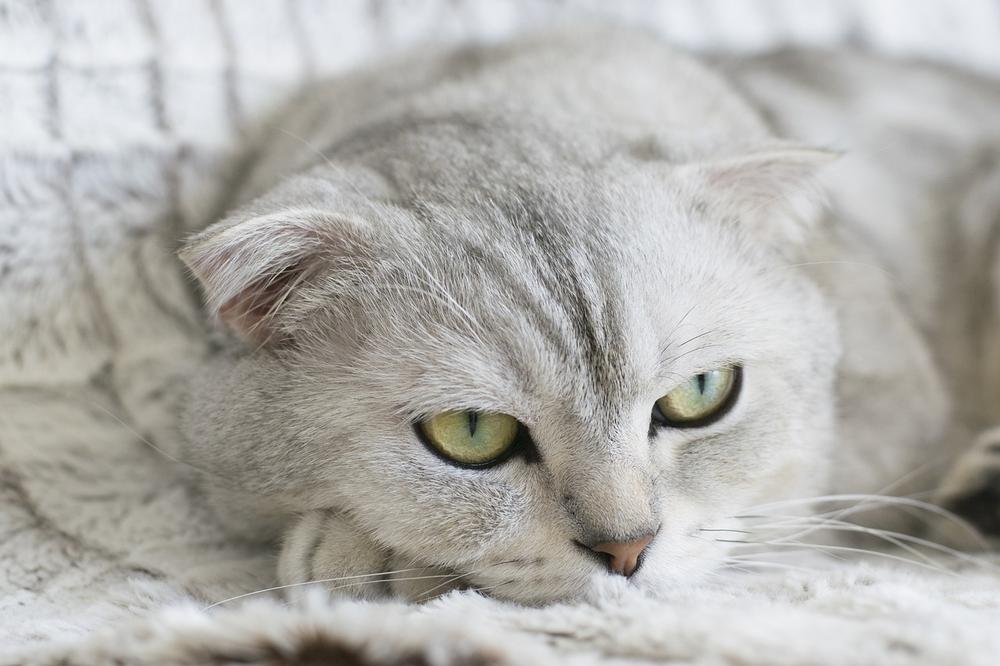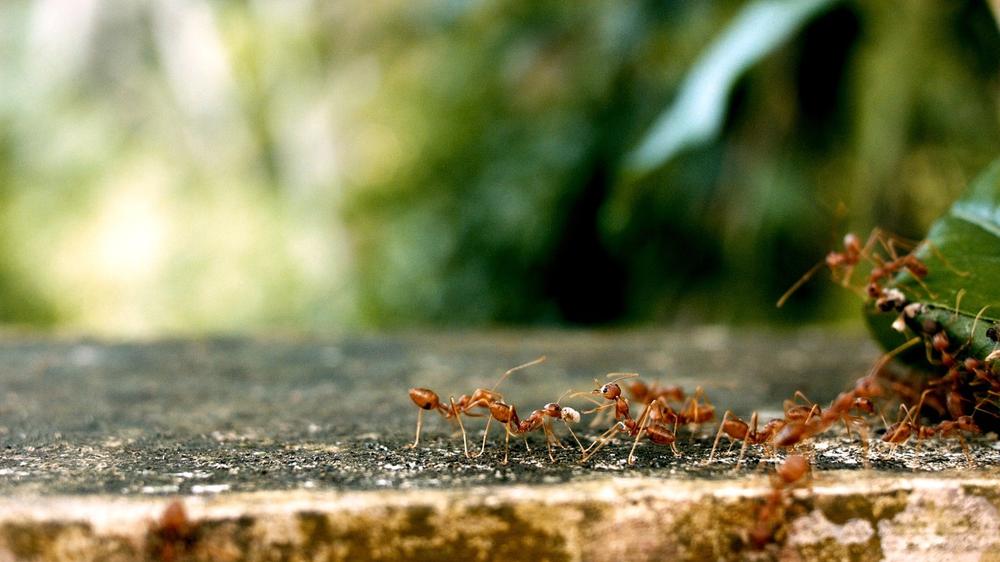Do Cats Normally Eat Ants?

Do you feel that?
The creeping sense of worry as you catch your cat sniffing around the kitchen floor.😟
The anxiety that bubbles up as you wonder, "Do cats eat ants?"
Well, let's address those concerns head-on.
Keep reading to uncover the truth.
Is It Normal for Cats to Eat Ants?
Yes, it is normal for cats to eat ants. This behavior is common among felines and is triggered by their natural hunting instincts. While a few ants won't harm your cat, you ought to ensure there are no ant problems throughout the house.
Cats eat ants.
It’s just what cats do.
In fact, it's a common behavior among felines.
But no need to panic!
If your cat nibbles on ants from time to time, you're likely safe.
A few ants won't harm your furry friend in most cases.
To cats, ants are tiny moving creatures that trigger their natural hunting instincts. It’s like a cat's version of playing with toys - harmless fun.
Speaking of ants, black ants pose no significant risk to cats.
They can even be helpful.
Yep, you got it.
Black ants act as natural pest control, reducing ant populations in your home. They're kinda like your cat's partners-in-crime in keeping those pesky ants at bay.
And guess what?
Even if ants bite, your cat should still be fine.
Cats can safely stalk and eat ants without major consequences.
Just ensure you don't have ant problems throughout the house, that could lead to bad things. And always keep an eye on your furball!
Main points I'll expand upon further down this article:
- Cats see ants as toys or potential prey and may enjoy playing with them.
- Ants contain protein and fat, which are part of a cat's diet.
- Cats are less likely to get worms from eating ants compared to flies or fleas.
- Ants can carry bacterial diseases like salmonella, so precautions should be taken.
- Cats consuming ants can experience digestive issues, mouth and throat irritation, and allergic reactions.
- Ingesting ant poison can be harmful or fatal to cats.
- Fire ants are dangerous for cats due to painful bites and venomous stings.
- Keeping ants out of your cat's food is important for their health.
- Storing food in a plastic container and using diatomaceous earth can deter ants.
- Using pet-safe exterminator services and practicing cleanliness can protect cat food.
Why Does My Cat Like to Eat Ants?
Cats eat ants because it's in their nature – they're hunters, you know.
Ants give cats something to play with and exercise their minds.
It's like a game for them, chasing those little critters.
But wait, there's more...
To cats, ants are like toys or even potential prey.
And guess what?
It doesn't bother them one bit.
Actually, the presence of ants can make cats curious. They watch how ants behave and it's kind of like their own personal science experiment – helping them spot any dangers.

And here's another thing...
If ants manage to invade your cat's food, you better believe your cat will gobble them up without hesitation. It's just part of their natural hunting instincts.
Oh, and did I mention that ants provide protein and fat?
These things are important for a healthy cat's diet, so ants are like a fancy little snack for them.
But here's the real kicker...
When cats squish ants, it releases oleic and folic acids.
This actually promotes their natural behavior and can calm them down.
So next time you catch your cat munching on some ants, don't worry – it's in their blood.
Cats are born predators, always chasing, playing with, and yep, chowing down on ants!
Can Cats Get Worms From Eating Ants?
Cats have a low chance of getting worms from nibbling on ants, much lower than from flies or fleas.
Although cats can still catch bacterial infections like salmonella or parasites such as tapeworms, the risk is not as high.
To avoid these health concerns, you may consider using flea control products.

These products not only help relieve itching and anemia but also prevent tapeworm infections caused by ingesting parasites.
Taking precautions to keep your feline friend healthy is essential if they have a penchant for devouring ants.
But if you're wondering about other risky feline eating habits, like devouring ants, you may be curious about Can Cats Eat Oreos.
In my blog post, I share insights into the potential dangers that come along with your feline friend having a sweet tooth.
The Effects of Cats Consuming Ants: Toxicity and Safety
Not all ants are safe for cats
Let's chat about cats and ants.
Cats love a good snack, but not all ants are harmless.
Some ant species can cause serious harm to your furry friend.
So, you must pay attention.
Cats consuming ants may face potential dangers
Ants have a sneaky trick up their sleeves – they can irritate the mouths and throats of our feline pals.
And when cats eat ants, that irritation becomes a discomfort.
That means digestive issues, excessive drooling, and difficulty breathing.
It's definitely no fun.
But wait, there's more!
Eating ants can also lead to allergic reactions in cats.
These reactions can cause vomiting, seizures, pain, paralysis, or even death.
Yikes!
We definitely want to avoid that, right?
Insecticides-treated ants pose serious risks
Now, let's talk about ants treated with insecticides.
These little critters are like ticking time bombs for your cats.
When cats munch on these ants, they also consume the pesticides.
And that's not good at all.
It can result in vomiting, diarrhea, weakness, tremors, and in essence misery for your beloved furballs.
And speaking of dangerous ants, red ants (especially fire ants) are really mean.
Their bites are painful, and their venomous stings can be life-threatening to cats. Multiple bites from them can cause burns, swelling, and seriously dangerous allergic reactions.
So, here's what you need to remember:
Always keep an eye on your cat, prevent them from snacking on ants, and seek immediate veterinary help if you suspect an allergic reaction or poisoning.
But what can you do to ensure your cat is safe from ants while still enjoying their meals?
Well, I have some strategies that you can implement to keep those pesky ants away and maintain your feline friend's health and well-being.
Yes, it's possible to provide a cat-friendly environment where ants won't stand a chance of invading their food!
How Do I Keep Ants Out of My Cat’s Food?

Here's how you keep ants out of your cat's food:
- Keep the cat food in sealed containers so ants can't get to it. This also keeps it fresh for longer.
- Use diatomaceous earth as a barrier around where you feed your cat. It stops ants in their tracks and keeps them away from the food.
- Make a "food bowl island" by putting the bowls on a tray with soapy water or surrounded by a moat of water. This makes ants think twice about crossing.
- Keep the feeding area clean by regularly washing the bowls and the space around them. Ants are attracted to crumbs and spills.
- Give natural deterrents a shot, like chalk, cinnamon, ash, petroleum jelly, essential oils, vinegar, or lemon. Ants can't stand the smell or feel of these things.
- If ants just won't quit, try pet-safe exterminator services or ultrasonic pest repellants. You want to keep those little critters at bay.
- Consider getting ant-proof bowls with barriers that stop ants from reaching the food. 😺
With these steps and some watchfulness, you'll be able to protect your cat's food from ants and ensure they stay healthy and happy.
And that wraps up today's article.
You made it to the end of my blog post, so I have a quick question for you: Did you enjoy it? I really put in a ton of effort to make my blog posts as informative and helpful as possible. It takes me quite a bit of time (in a positive way), so if you could do me a huge favor and click on any of the social sharing icons to pass it along to others, I would truly appreciate it. Thanks so much!
Talk soon,
-Sarah Davis